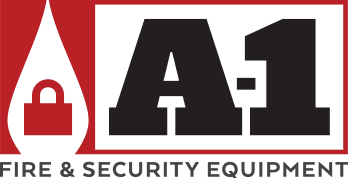The benefits that medical alert systems bring is undeniable. These systems help in keeping our senior loved ones from falling in and around the house.
According to the Centers for Disease Control, one in three American seniors over the age of 65 suffer from falling each year. Another report by the National Council on Aging stated that falls are the primary cause of seniors losing their independence. Falls may then lead to injuries or, sometimes, even death.
Many seniors reduce their daily physical activities or lose the motivation to exercise due to fear of falling. While this precaution may lessen the risk of falling, cutting back on doing exercises or physical activities doesn’t promote a healthy lifestyle for our seniors.
Fall rates grow considerably as we age. Fortunately, with medical alert systems, we can take extra precautions to reduce the risk of falling among our seniors.
Reducing the Risk and Fear of Falling
The first step to diminish the risk of falling is by encouraging our senior loved ones to engage in activities that reduce fall risks. Of course, don’t do anything without the professional guidance of a doctor or medical professional.

Engaging in these activities – combined with proper diet and plenty of rest – can also help in improving cardiovascular function and lowering blood pressure.
Fall Prevention at Home
By following some simple steps, we can help eliminate the threat of falling at home for our seniors.
Ensuring Safety for Our Seniors
Most falls take place at home. To make the home for our seniors a safer place to live, please look at the following tips:
- Keep cords, cables, and other tripping hazards such as shoes, boxes, and plants away from stairs or walk areas in the home.
- Replace rugs with non-skid mats. You can also put double-sided tape under rugs to keep them from slipping.
- Install grab bars in the bathroom – next to the toiler or in the shower.
- Install handrails on either side of the stairs.
- Make sure your home is well-lit. Improve the lighting systems throughout the house.
Medical Alert Systems
One of the most vital features of medical alert systems is that they are wearable, and they stay on the body of the wearer – to ensure their safety.
Here are some other essential features that should help you decide what type of medical alert system is right for you or your loved one.
Waterproof Feature
Medical alert systems’ waterproofness is a crucial feature. Why? A majority of falls at home takes place in the bathroom or the shower. The National Institute Aging recommends seniors to make sure that their device is waterproof – not just splash-proof.

Other alert systems also have a fall detection – this feature automatically detects if the wearer of the device fell.
Mobile System or In-Home System
Do you need a GPS outdoor device for your medical alert system? Should you choose an at-home system tied to a landline or mobile phone?
Mobile System
A GPS outdoor device – with its tracking capabilities – is a fantastic variety of a medical alert system. It allows the wearer to be tracked when they are outdoors by an emergency operator. Running errands, going to a doctor’s appointment, or going to the park are more done with ease and comfort for a senior with a mobile medical alert system.
At-Home Connected to a Landline
Many don’t need a GPS tracking device feature in their system. For this reason, an at-home landline system offers the level of protection they need. Since most falls occur at home, the wearer will need to be monitored as they go about their day-to-day routine at home.
Aside from reducing the risk of falls at home, you can also handle other emergencies such as fires or break-ins.
In conclusion, medical alert systems make your senior loved one’s home a safe haven where they can live with ease and comfort.
